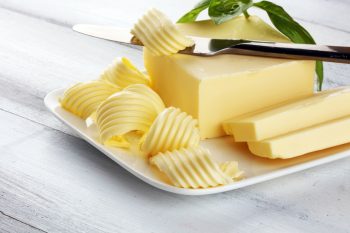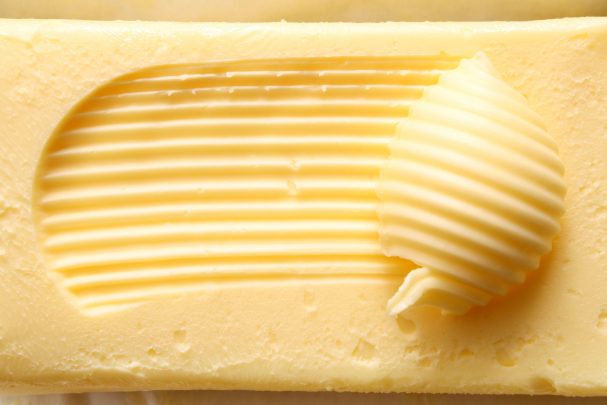Have you ever wondered about the differences between butter and margarine? These two popular spreads often find their way onto our toast, baked goods, and recipes. While they may seem similar, butter and margarine have distinct characteristics and nutritional profiles.
Let’s get our facts straight:
Butter, a classic choice
Butter is a dairy product made from churning cream or fermented milk. Its rich, creamy taste makes it a go-to for everything from a quick sandwich to baking recipes.

Getty
The main characteristics of real butter are:
- Butter has a smooth, creamy texture due to high milk fat content.
- It’s naturally rich and slightly salty flavour.
- We all know the struggle of attempting to spread butter when it’s chilled! Solid consistency is a trademark for real butter, though.
- Butter is high in saturated fats. Consuming too much-saturated fat may increase cholesterol levels, however, butter contains essential fat-soluble vitamins such as A, E, and K.
ALSO SEE: Don’t let high cholesterol be the villain to your story – get yourself checked!
Margarine, the modern alternative

Getty
Margarine was created as a more affordable and widely available alternative to butter. It was initially developed as a plant-based spread, but some margarine contains dairy ingredients as well.
- Margarine is typically made from vegetable oils such as soybean, sunflower, or canola oil.
- Margarine has a milder flavour compared to butter. It often comes in different variants, including unsalted, lightly salted, or flavoured options. The aroma of margarine is less pronounced than that of butter.
- The texture of margarine varies depending on the brand and type. Some kinds of margarine have a soft and spreadable consistency, while others are firmer and better suited for baking. It is important to check the packaging or labels for the recommended uses.
- Modern margarine has evolved to provide healthier options. Many brands now offer margarines that are lower in saturated fat and contain beneficial unsaturated fats.
Both butter and margarine have their own unique qualities and can be enjoyed in moderation as part of a balanced diet. Butter offers a rich taste and creamy texture, while margarine provides a more affordable option.
ALSO SEE:
Feature Image: Getty Images

